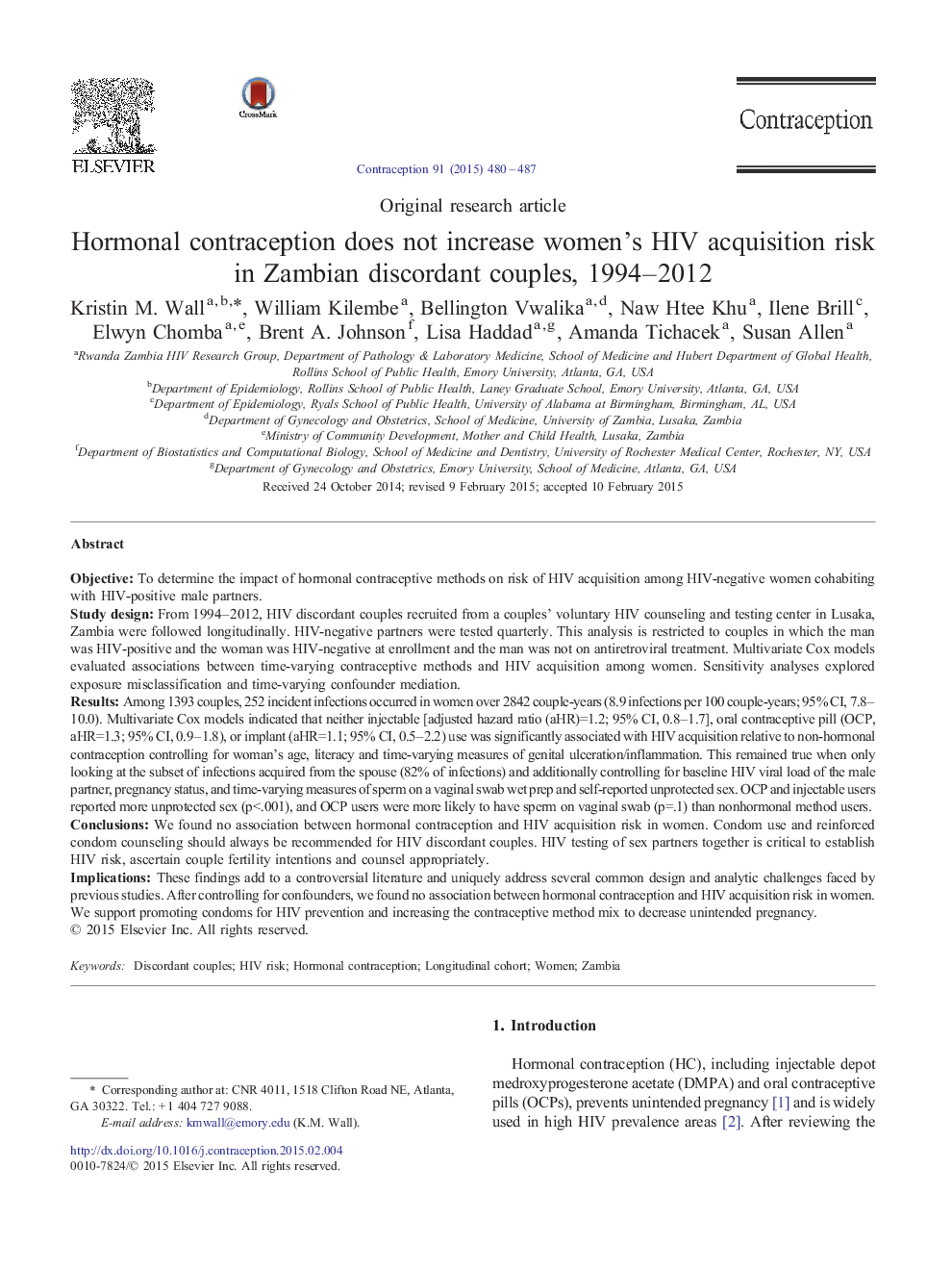| کد مقاله | کد نشریه | سال انتشار | مقاله انگلیسی | نسخه تمام متن |
|---|---|---|---|---|
| 3913197 | 1251425 | 2015 | 8 صفحه PDF | دانلود رایگان |

ObjectiveTo determine the impact of hormonal contraceptive methods on risk of HIV acquisition among HIV-negative women cohabiting with HIV-positive male partners.Study designFrom 1994–2012, HIV discordant couples recruited from a couples' voluntary HIV counseling and testing center in Lusaka, Zambia were followed longitudinally. HIV-negative partners were tested quarterly. This analysis is restricted to couples in which the man was HIV-positive and the woman was HIV-negative at enrollment and the man was not on antiretroviral treatment. Multivariate Cox models evaluated associations between time-varying contraceptive methods and HIV acquisition among women. Sensitivity analyses explored exposure misclassification and time-varying confounder mediation.ResultsAmong 1393 couples, 252 incident infections occurred in women over 2842 couple-years (8.9 infections per 100 couple-years; 95% CI, 7.8–10.0). Multivariate Cox models indicated that neither injectable [adjusted hazard ratio (aHR)=1.2; 95% CI, 0.8–1.7], oral contraceptive pill (OCP, aHR=1.3; 95% CI, 0.9–1.8), or implant (aHR=1.1; 95% CI, 0.5–2.2) use was significantly associated with HIV acquisition relative to non-hormonal contraception controlling for woman's age, literacy and time-varying measures of genital ulceration/inflammation. This remained true when only looking at the subset of infections acquired from the spouse (82% of infections) and additionally controlling for baseline HIV viral load of the male partner, pregnancy status, and time-varying measures of sperm on a vaginal swab wet prep and self-reported unprotected sex. OCP and injectable users reported more unprotected sex (p<.001), and OCP users were more likely to have sperm on vaginal swab (p=.1) than nonhormonal method users.ConclusionsWe found no association between hormonal contraception and HIV acquisition risk in women. Condom use and reinforced condom counseling should always be recommended for HIV discordant couples. HIV testing of sex partners together is critical to establish HIV risk, ascertain couple fertility intentions and counsel appropriately.ImplicationsThese findings add to a controversial literature and uniquely address several common design and analytic challenges faced by previous studies. After controlling for confounders, we found no association between hormonal contraception and HIV acquisition risk in women. We support promoting condoms for HIV prevention and increasing the contraceptive method mix to decrease unintended pregnancy.
Journal: Contraception - Volume 91, Issue 6, June 2015, Pages 480–487